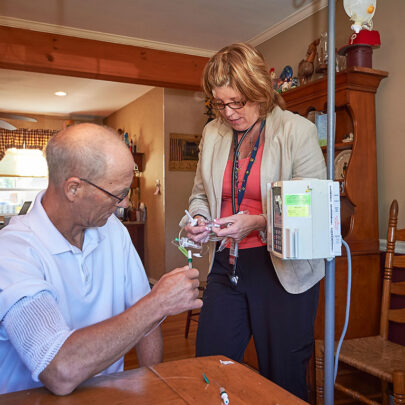Why Medicare’s COVID-19 Policy Waiver is Not Enough and How to Fix It
June 3, 2020
In a new Viewpoint article for JAMA, co-authors Justin Bekelman, Ezekiel Emanuel, and Amol Navathe discuss an unprecedented emergency policy waiver by the Centers for Medicare & Medicaid Services (CMS) in April of this year and offer four important actions CMS should take to ensure these changes achieve their intended effects. In response to the COVID-19 pandemic, the CMS emergency policy waiver allows for many services to be relocated to Medicare beneficiaries’ homes for the duration of the public health emergency and, critically, to be reimbursed at outpatient rates rather than the typical, and lower, physician fee schedule for new off-campus sites. This means about a 40% reimbursement increase for these services. The waiver is intended to end when the Department of Health and Human Services withdraws the COVID-19 pandemic emergency declaration, the timing of which remains uncertain.
The waiver incentivizes innovation to accommodate provision of treatments and services at home, which is both critical during the pandemic, particularly for immunocompromised patients, but also more patient-centered and less expensive beyond the current pandemic environment. For health systems to incorporate and scale these innovations, however, they need CMS to take the following four additional actions:
- CMS should publicly announce the policy waiver’s extension for 12 months after pandemic ends in order to encourage the fullest possible uptake of innovation to treatment at home in response to the waiver.
- CMS should provide technical assistance to accelerate implementation of innovations leveraging its existing resources, such as practice support resources provided to innovation model participants.
- CMS should align the policy waiver to its existing value-based payment model strategy, such as with by allowing for higher reimbursements in the short-term while driving broader cost-saving incentives in the long-term.
- CMS should protect Medicare beneficiaries from higher out-of-pocket spending that may occur for treatment at home.
If CMS and health systems are successful in implementing innovations encouraged by the policy waiver, it could result in better health care at lower cost for Medicare beneficiaries beyond the current pandemic setting. Read the full Jama Network article.
The article, “Outpatient Treatment at Home for Medicare Beneficiaries During and After the COVID-19 Pandemic,” was authored by Justin E. Bekelman, MD; Ezekiel J. Emanuel, MD, PhD, MSc; and Amol S. Navathe, MD, PhD, and was published in the Journal of the American Medical Association on June 3, 2020.
